Ruminating with SUSIE ESSMAN
How she's different from her "Curb" character and why comedy is in trouble
I met Susie Essman—a lifelong New Yorker— in 2008 when we appeared together on stage with Andy Borowitz at the 92nd Street Y. I was the designated non-funny one. The event—focused on that year’s political campaign— went well and afterwards I told Susie how much our three children loved her role as Susie Greene on “Curb Your Enthusiasm,” where she spends much of her time on camera telling off Larry David and calling her husband, Jeff, "a fat fuck" among other pleasantries. Susie Essman is not at all like Susie Greene and our whole family ended up having a really fun lunch with her. Toward the end, our then-14-year-old, Molly, suddenly said: “Susie, will you curse me out?” Susie replied along the lines of, “Fuck you, Molly. You’ve been sitting there for two hours and haven’t said a fucking word! What the fuck is wrong with you?” Needless to say, Molly was thrilled.
Susie and I started our conversation by talking about grandchildren. Our older daughter, Charlotte, is expecting a baby girl later this month and Susie has a nine-month old granddaughter named Aria. She confirmed how much my wife and I have to look forward to.
JONATHAN ALTER:
So how old does Aria have to be before she can watch Curb?
SUSIE ESSMAN:
That’s an interesting question because my 13-year-old niece asked me the other day if she could start watching it. I said that's up to your mother. It's not my language. Believe me, she's heard every fuck or whatever in her life. It's the content that is a little beyond her, like Larry getting a pubic hair stuck in his throat.
JON:
Is it that or is it the sort of misanthropic cynicism about the world that you don't want an impressionable tweener to absorb?
SUSIE ESSMAN:
That doesn't bother me at all. Misanthropic cynicism— I think that's healthy.
JON:
To the dismay of family and friends, we let our kids watch almost everything. So when Curb launched 21 years ago, they saw it as preteens. Family and friends were scandalized by all the stuff we let them watch. They turned out fine, anyway. The right age to watch is whenever they start to appreciate it. What would you some day tell your granddaughter was your favorite episode?
SUSIE ESSMAN:
I have a lot of favorites. But I think my all-time favorite would be in Season 2, The Doll. It's the most perfectly crafted half-hour of comedy that I've ever imagined. Larry’s ability to create these multiple storylines that intertwine and then resolve in the end is pure genius. It was the first time that you really see Jeff and Larry living in fear of Susie. And it was the first time that I had that spaghetti western theme music [in a scene]. In the first few seasons, I was a day player. I had no contract. I never knew if I was coming back from year to year. And so that was a moment in time where I think I really established my importance in the storyline.
“I wanted her to be this person that just was absolutely secure in everything and believed that she was right all the time and never questioned anything, which is not me at all.”
JON:
I know you've been asked this a million times. How much of the real you is in Susie?
SUSIE ESSMAN:
You know, I’m nothing like her except in the sense that neither of us suffer fools gladly. We don’t take shit from anybody. But she's Susie Greene. People always think I'm her but I have no interest in playing myself. She's a character I created. It's so much fun to play because she's so different than me. She's completely reactive. You say something to her and she punches you in the face verbally. I'm completely analytic. I look at everything from every which way. I'm insecure. I'm like an open wound. She has no insecurities whatsoever. That's why she dresses the way that she does.
I remember when I was in high school there were these girls. Everything about them was average and yet they were completely confident. They thought they were gorgeous. They must have had mothers that really loved them.
I had a difficult childhood and they just had all this confidence and I always would marvel at them because there was no reason for them to have it, yet they did. So I kind of modeled Susie on that. I wanted her to be this person that just was absolutely secure in everything and believed that she was right all the time and never questioned anything, which is not me at all.
I remember when I was in high school there were these girls. Everything about them was average and yet they were completely confident. They thought they were gorgeous. They must have had mothers that really loved them.
JON:
But when you're inhabiting the role and it's improv and no written dialogue at all—some of it’s you, right? So just to take the first episode of this season: Are you a plopper?
SUSIE ESSMAN:
No, “plopper” was actually in the outline because that's a storyline. I don't remember exactly what that outline said but something like, “Susie plops down, the wine spills [on the couch]. Larry accuses her of plopping and she says she didn't plop.” It's a story point. But there's no dialogue written.
JON:
To me, the paradox of the show is that it's improvised but at the same time it may be the single most tightly plotted half hour I've ever seen on television. The intricacy is like a jigsaw puzzle.
SUSIE ESSMAN:
Every episode [is like that] and this season more than ever. And you'll see in Episode 10 how everything that was laid out in Episode 1 is going to come together. Things you completely forgot about are going to come together in Episode 10.
Larry and Jeff Schaffer, who's our executive producer and director, plot out these outlines and these episodes and it takes them months and months and months because they’re so dense.
JON:
I got a firsthand look at how hard it is a few years ago when I was a producer of Alpha House and we were in the writers room for weeks on end trying to bring our A, B, C, sometimes D stories in each episode together. We could do some of it and Garry Trudeau is very talented but it is really hard going over different combinations on the lock to try to get the stories to overlap.
SUSIE ESSMAN:
Luckily, I don't have to worry about any of that. I work with a genius and that's his area. I don't throw that word around lightly. Larry is so brilliant in so many ways but I really think story is his number one piece of genius that he has that nobody else has. Nobody can plot a story like he does.
JON:
But it wouldn't work if you guys weren't all such brilliant improvisers. I mean, the stories are kind of like Seinfeld stories. They're basically about nothing. There are no stakes and nothing that one would normally associate with a good story except intricate plotting. And yet you infuse the quotidian and everyday stupidities with great improv.
SUSIE ESSMAN:
But when other people try to do improvised shows they don't work because they don't have Larry's story sense. So when we're improvising we know exactly what we have to do in terms of story. We know in any given scene what we have to get to. So it's really easy and fun to improvise because the parameters are there. You're not just going off on tangents and going everywhere, willy nilly.
Larry always says that 95 or 98 percent of the time the actors that are improvising come up with stuff that he never would have thought of and that make it so much better. Maybe two or three percent of the time he wishes he could have written a scene. And that's usually when he hires somebody who's not a great improviser.
JON:
So most of the people are good at improv or they wouldn’t have been cast?
SUSIE ESSMAN:
We get a lot of comics and we're all generally improv people. There have been actors who have come on that really have a hard time with it because they're so used to having scripts.
JON:
Does he hire people from Second City and other improv troupes or does he not go that far?
SUSIE ESSMAN:
Cheryl [Hines] is from the Groundlings. Jeff [Garlin] was actually Second City but Jeff was also a stand-up. There are other people that come from Upright Citizens Brigade. The core cast were all stand ups. J.B. [Smoove] is a stand up. [Richard] Lewis— we all grew up in the stand up world.
JON:
Tell me something about JB Smoove that I don't know.
SUSIE ESSMAN:
He's really, really sweet. We both grew up in Mount Vernon [New York]. He's 10 years younger than me but we went to the same high school.
JON:
I just start laughing every time he shows up.
SUSIE ESSMAN:
He's a brilliant improviser. I mean, the stuff that he comes up with—-it’s insane. That brain—it’s just insane.
JON:
I know it varies, but how many takes will you do of a scene?
SUSIE ESSMAN:
It depends. Sometimes it takes us a while to find the scene. This is the process that we usually go through: We are blocked for camera and we don't speak— we don't do any improv during rehearsal. It's really just camera. We don't do any of the lines because we don't want to waste them. More often than not, it takes us maybe six or seven takes till we figure out what the scene is just by playing and then we kind of say, ‘Okay, that's locked.’ But it's not strict. If something funny occurs to me in the middle that we hadn't done before, I'll still do it. And they need more takes for editing.
“We just laugh all day long. He can't get through scenes and he ruins all my best takes. “
JON:
When you think of Larry, is there a particular moment that comes to mind?
SUSIE ESSMAN:
I would say in general, laughing. We just laugh all day long. . He can't get through scenes and he ruins all my best takes. That's another reason why we do a lot of takes—it’s because Larry breaks up all day. Sometimes we have these horrible days where there's just, like, shit to do. But by and large he has a joyous laugh, so making him laugh is to me one of the great things of my life.
JON:
Unlike you, he is playing himself on some level, right?
SUSIE ESSMAN:
I disagree with that, because I know him so well. He will say things like, ‘I aspire to be that character.’ But he does not behave in that jerky way. He's a leader. He's got a whole crew that looks up to him and loves him and works with him and quits other jobs to come back to Curb. We call it ‘Show Larry’ and ‘Real Larry.’ He knows better in real life. He's extremely sensitive to other people's feelings. He's hyper aware—I think more so than most people— and cares about other people.
JON:
But all of you have to be accessing something from your life.
SUSIE ESSMAN:
We’re all complicated, multiple personalities.
JON:
You're now being described as a “rage icon.” I saw in an interview that you said that in your act you fobbed off on your aunt and uncle what was really your parents fighting with each other. Is that right?
SUSIE ESSMAN:
So you got a lot of rage in my household. My parents— you know, there's something so freeing once they're dead and you can really tell the truth.
My parents were married 50-something years and they had a horrible marriage. My father was a serial philanderer and my mother was a deeply, deeply unhappy depressed woman, which a lot of women of that time were because they were not actualized. I think a lot of women of that generation were angry and frustrated.
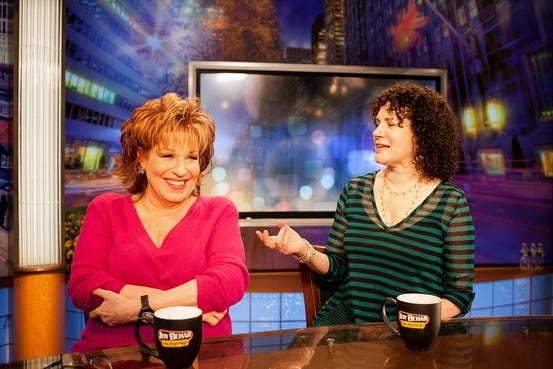
I played this game with Joy Behar the other day which was: Really quickly pick three adjectives to describe your parents. And the three adjectives I picked for my mother—the first one was lonely. My mother was a deeply lonely person, and if she was surrounded by other people or husband or children, it didn't matter. And she blamed everybody for her unhappiness and her loneliness. So that was the difficult part about her. She wasn't just depressed and lonely—she was [a blame-shifter]. It was all our fault. It was my father's fault for years and years and years, and once he died, it was our fault. No matter what you did, it was not enough. So there was a lot of tension growing up and there was a lot of screaming and yelling and fighting and doors slamming. I remember every door in our house was off the hinges because my father would punch the doors so he wouldn't hit any of us but sometimes he did. He was an angry guy, my father, a Lower East Side tough Jew.
My mother was a deeply lonely person, and if she was surrounded by other people or husband or children, it didn't matter. And she blamed everybody for her unhappiness and her loneliness. So that was the difficult part about her. She wasn't just depressed and lonely—she was [a blame-shifter]. It was all our fault.
JON:
Do you feel in the last 21 years that you've been less angry in your real life because you can express all that stuff from your childhood in the show?
SUSIE ESSMAN:
Well, yes, that's one of the reasons I'm less angry. I'm not really very angry at all—except about politics—for so many reasons. I had a full psychoanalysis. Meeting my husband and having a really good relationship. My kids all being grown. When you're raising teenagers, there's a lot of stress and drama and having them all launched and adults is such a lovely thing to just see them all living their lives and blossoming. And just having success in my career I think has made me a lot less angry. And on top of that, expressing it creatively.
JON:
Besides the mishegoss of your childhood, there’s also, somewhere in your genes, the whole Borscht Belt tradition. There's a reason why so many comedians come out of Eastern Europe. There's a difference between them and the uptight German Jews, who didn't really become comedians as much.
SUSIE ESSMAN:
It's the shtetl Jews, from the Pale. The German Jews were much more assimilated. The great Borscht Belt comedians— the Jack Bennys and the George Burnses and later on the Alan Kings---were all the traditional outsider immigrant looking in. And also, in Judaism, there's something about questioning. To be a learned person, you're studying the Talmud and the Torah. And you're always questioning it. My husband's Catholic, where you do what the priests tell you to do. You don't ask any questions. But in Judaism, you're supposed to constantly analyze and question. That tremendously lends itself to comedy, don't you think?
JON:
Oh, absolutely. though it didn't rub off on me that much.
SUSIE ESSMAN:
But you’re an intellectual, Jon, same thing.
JON:
Yeah, it’s talking back. Talking back to God. It’s supposed to be an argument. It’s the same reason there's so many Jewish lawyers. We like to argue.
SUSIE ESSMAN:
I think that's changed. It's no longer that immigrant mentality the way it was in my parents’ generation. Were your grandparents immigrants?
JON:
One grandmother was and the other three had parents who were just a few years off the boat when their kids were born in this country. My parents were of a generation born in the ‘20s that was really into assimilation. They didn’t want Yiddish. Even my grandparents were trying to get away from all that.
SUSIE ESSMAN:
One of the things my parents did right was they didn't indoctrinate us with religion at all. None of us were Bar Mitzvah.
JON:
Same with me and my wife, who is also Jewish, and yet all three of our kids had a Bar Mitzvah.
SUSIE ESSMAN:
My grandmother was deeply ashamed and embarrassed by her immigrant experience. She grew up on the Lower East Side in brutal poverty— no indoor plumbing—and left school in the third grade to go to work in a factory. And I remember asking her questions, and she did not want to talk about it. She used to say to me that she was so ashamed of being an immigrant, of not being an American.
JON:
My grandmother was a little girl when she landed on Ellis Island in 1911 and she had a nice, graceful way of having it both ways. She would tell stories about having witnessed pogroms and yet her mother sent her to some kind of Jewish finishing school where she learned to speak with no accent—“What a wonderful pah-ty!”— and she stayed a blonde her whole life. She was an enormously classy and gracious woman who scrubbed all that immigrant experience off of herself, but didn't actually try to hide it.
Of course she was discriminated against by the German Jews. Our kids’ generation have no idea about this thing between German Jews and Russian/Polish Jews. The slur “ kike,” for instance, was originated by German Jews to use against Eastern European Jews. We just saw The Lehman Trilogy on Broadway and it’s fantastic but they missed that part.
Which comedians did you revere when you were growing up?
SUSIE ESSMAN:
Mel Brooks was number one. In 1960, when I was five years old, my parents got “The 2000-Year Old Man” album. And I listened to it non-stop. I used to stand on the kitchen table and I would do the whole thing— both Mel and Carl [Reiner]’s parts. I couldn't have understood the content but there was something in the rhythm of it—the music of it—where I just got the timing. Later, onstage, I would hear the timing in my head. I would hear myself delivering something that was in that timing. It was so deeply ingrained to me and my father, who was not a funny guy but thought he was and would say a line from the album, but he would leave a word out or say the rhythm wrong and it was like nails on the blackboard to me— like he was singing flat. So there was something that I picked up in the music of it. And that was my first real comedic influence.
JON:
That must have been really fun when Mel was on for the better part of Season 4 [in 2004].
SUSIE ESSMAN:
It was thrilling and a lot of times you don't want to meet your idols. He was a delight and and so was Carl, who I met many times, and I remember meeting Sid Caesar. Growing up, I don't remember being that influenced by female comedians, like Joan [Rivers] or Phyllis [Diller] because they were all so self- deprecating. I don't think the world would have accepted them unless they were self-deprecating. [They couldn’t] go out as strong women and just tell their truth or their story or what they thought. Phyllis had to wear those crazy outfits and Joan had to constantly be talking about how ugly she was. (She wasn’t, you know). So I was more influenced by sketch comedy. Carol Burnett had a tremendously huge influence on me. I didn't even think about stand-up. That didn't occur to me.
My brother was five years older than me and he would come home from school with all his friends. And they’d smoke pot and then they would tell my brother to get your little sister in here to entertain us [standing] on the kitchen counter. And I would just make shit up. I would do parodies and I would pull cans of things from the cabinet and make up commercials and do different characters and imitate my grandmother and my aunts and all our family members. And they were my first audience.
JON:
When you started to make a living at it and put your family in your material, did any of them get pissed off?
SUSIE ESSMAN:
My mother was always pissed off at me, anyway. So I disguised people pretty well. And my mother used to say, ‘I know that's not really me.’ It was totally her. When I was single and dating, I would do a lot of stuff about ex-boyfriends. And they would say to me, ‘I know that it was about me.’ Their bid for immortality. But usually I found that people don't generally recognize themselves when you're doing them on stage.
JON:
Did you analyze comedy when you were on the way up? I remember when Seinfeld was going off the air, Jeff Zucker was the executive producer of the Today Show when I was doing a fair number of pieces for them in the ‘90s. Jeff sent me to California and I talked to Carl Reiner, Steve Allen, a bunch of other comedians about what made Seinfeld great. There was some dispute that prevented the Today Show from using Seinfeld clips, even though it was also an NBC show. So we’d lift Seinfeld episodes off of WPIX [local programming] and we had to make sure that the WPIX logo was not visible on the stuff we used.
SUSIE ESSMAN:
It's such a New York story.
JON:
But you know, the piece wasn't that great because at the end of the day, even though I was meeting all these comedy icons, they couldn't really explain what made Seinfeld so good. There's a certain mystery at the core of the whole thing.
SUSIE ESSMAN:
See, this is why I think Larry's a genius. You can't figure out how Mozart hears something that nobody else heard. When comedy is really good, it goes beyond any kind of analysis. You can't take it apart. It lives on its own plane. On its own level. That's so emotional. Comedy is always about surprise. You're not expecting something and it's delightful and surprising and it makes you laugh. If you know what's coming, it's not as funny.
“When comedy is really good, it goes beyond any kind of analysis. You can't take it apart. It lives on its own plane. On its own level. That's so emotional. Comedy is always about surprise. “
JON:
It's also about boundary breaking right and and playing with taboos and going right up and sometimes over the line. So given the society that we're living in now, is comedy in trouble?
SUSIE ESSMAN:
I think so. I am extremely happy I’m not a young comic coming up. When we were coming up, there weren't cell phones—forget about Twitter and Instagram and Tik Tok— no cell phones! You could be in a comedy club and it felt really, really private. It was down and dirty, you know, and dark and stunk of beer and alcohol. As a young comic, you could push that envelope. I remember being on stage and getting that feeling like —I just went too far. That's how you grow and that's how you figure out what your line is and what lines you can cross and what you feel comfortable with. And everybody has their own moral compass. I mean, somebody could do a rape joke and make it funny. I never could do that—it just was never funny to me. But I'm not everyone. To me, there's nothing taboo,
JON:
But you wouldn't subject them to the career death penalty if they did do a rape joke, right?
SUSIE ESSMAN:
If you're a young comic now coming up, what do you do? I mean, the parameters are so strict. Fortunately, I'm on a show and working with somebody who doesn't give a shit.
JON:
You're kind of grandfathered in a little bit with the show.
SUSIE ESSMAN:
Yeah. I've seen all the episodes and I'm watching it and like, ‘Oh my God, this is so politically incorrect.’ But it's so politically incorrect, it's correct.
“I've seen all the episodes and I'm watching it and like, ‘Oh my God, this is so politically incorrect.’ But it's so politically incorrect, it's correct.”
JON:
What do you mean by that?
SUSIE ESSMAN:
That it's so obviously politically incorrect. You know he's created this character. The character will say all the things that everybody thinks but [are] afraid to say. That's why people love the show. It's pointing its finger at political correctness or incorrectness, whatever it may be.
JON:
The span of the show goes from when political incorrectness started before the turn of the century and now we're into wokeness, which is just a variation on the same thing. And because he's always the butt, [he] can get away with it?
SUSIE ESSMAN:
When Mel Brooks did the movie The Producers in the 60’s, he got a lot of criticism for making fun of the Nazis. That it was too horrible to joke about.
JON:
‘Springtime for Hitler, and Germany.’
SUSIE ESSMAN:
Mel said, ‘My only power is to ridicule them.’ So I see Larry in a similar way. He's ridiculing both sides. It’s brilliant how he does it.
JON:
But meanwhile, comics can’t go on campus. Do you do campus events?
SUSIE ESSMAN:
I haven’t in so many years, but I understand why [comics] don’t want to do it. My feeling is, if you find the show offensive, then don't watch the show. I don't want us to pander to anybody. I mean, I'm an old lady so it doesn't really matter.
JON:
Can you envision a different path that somehow gets us out of this scary cul-de-sac that we're in culturally? Can you envision a time when you could go to a rural area of America that loved Seinfeld when it was on TV, and figure out how to reconnect to some of those people who've been fed this diet of Fox poison—or is it just beyond repair?
SUSIE ESSMAN:
I think it's beyond repair and I hate saying that. I read that 30 percent of Republicans believe that violence is necessary to save this country. We live in two completely different realities. Can comedy bridge that gap? The gap is so huge. I don't think it's enough. What do you think? I'm not feeling that optimistic.
JON:
No, I'm not either. The thing that makes me a little hopeful is that younger people—even if in workplaces it sometimes seems the inmates are running the asylum— are not into Trump. He did terribly with younger voters. But will they mobilize? And will Democrats get tougher? They need to get a little Susie Greene in them.
Thanks, Susie.




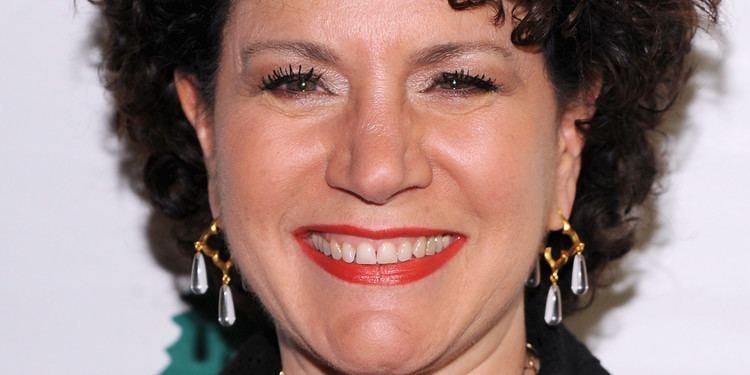

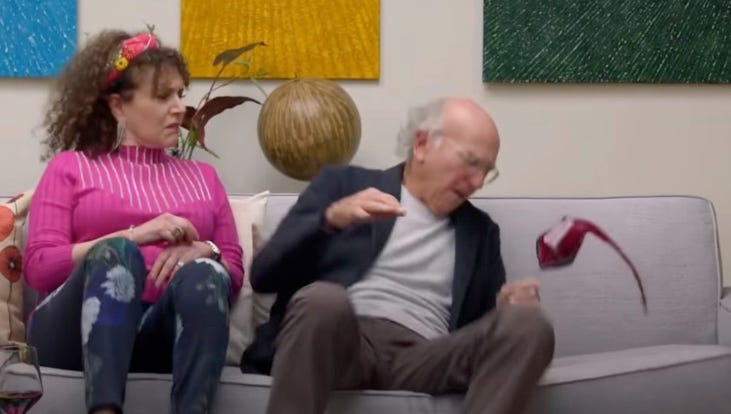
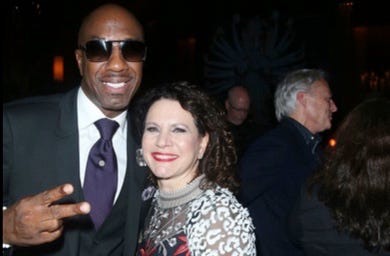
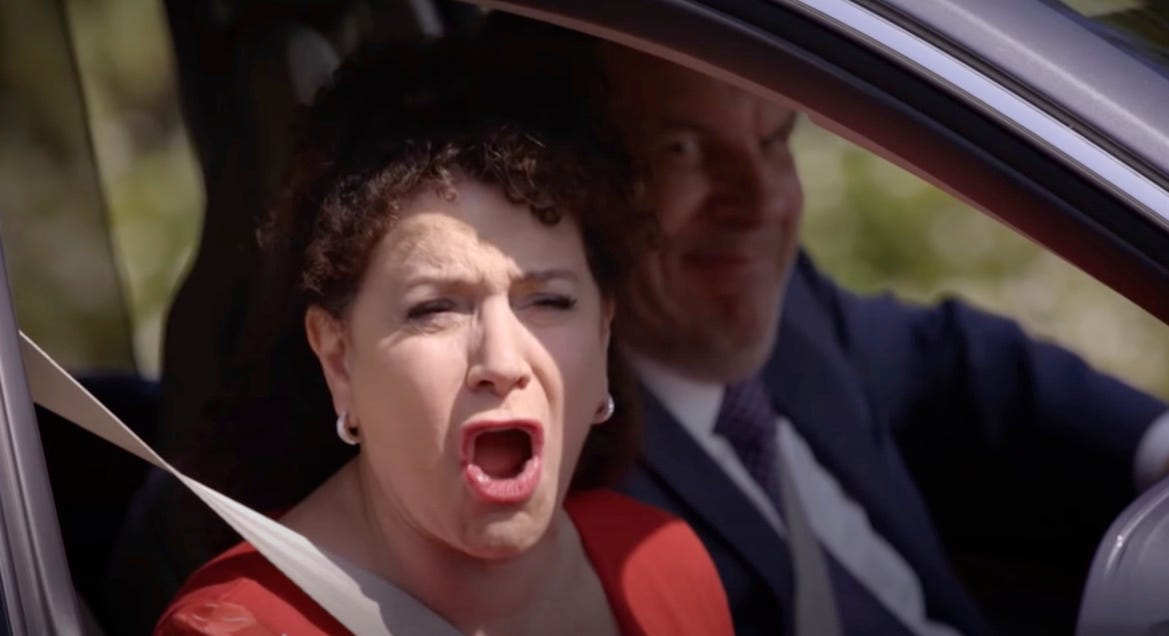
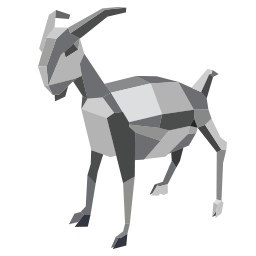
As a kid in the 50s, my heroes were baseball players and Borscht Belt comics. Myron Cohen, Henny Youngman, and Alan King were the high point of my Sunday night (see Ed Sullivan). Back then, I didn't realize the backstory of the Jewish standup comedian as I do now. I look to these performers as guides to clear truth of the American immigrant experience. I agree that there's a chasm in this country - and I feel that it divides the striving immigrant mentality and the smug entitled mentality. As to who will prevail in the end - my money's on the former (and the key is maintaining a healthy immigration policy).